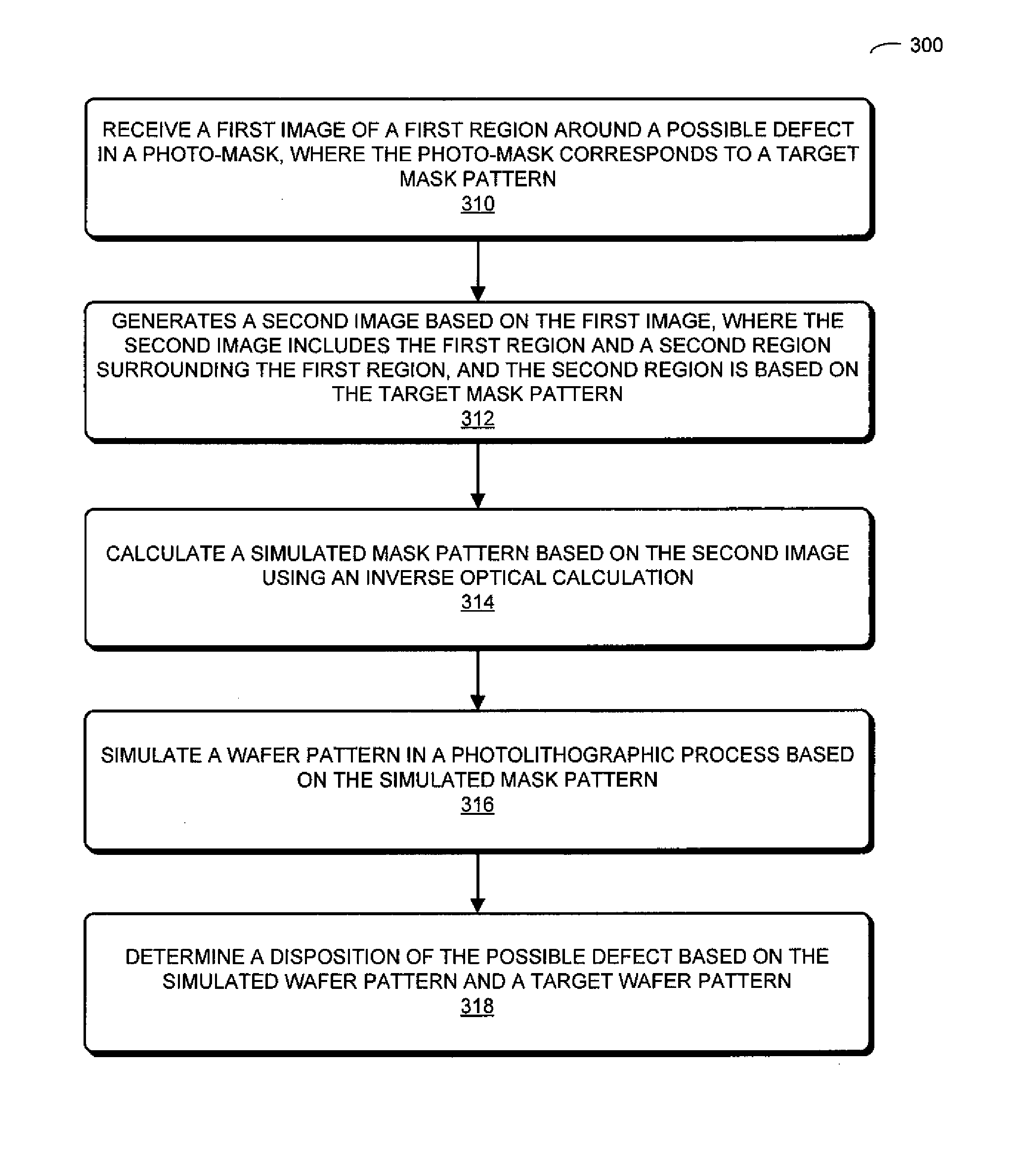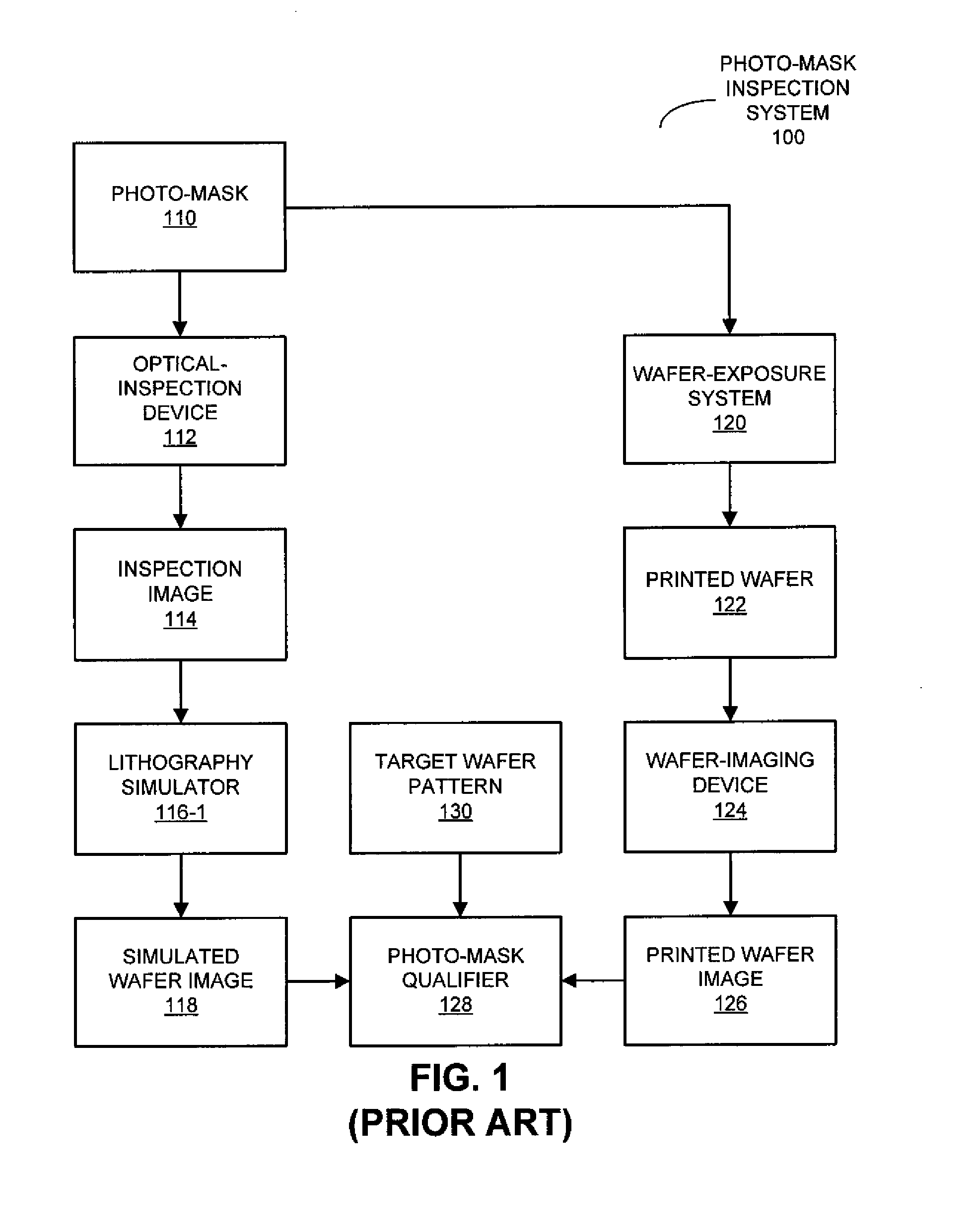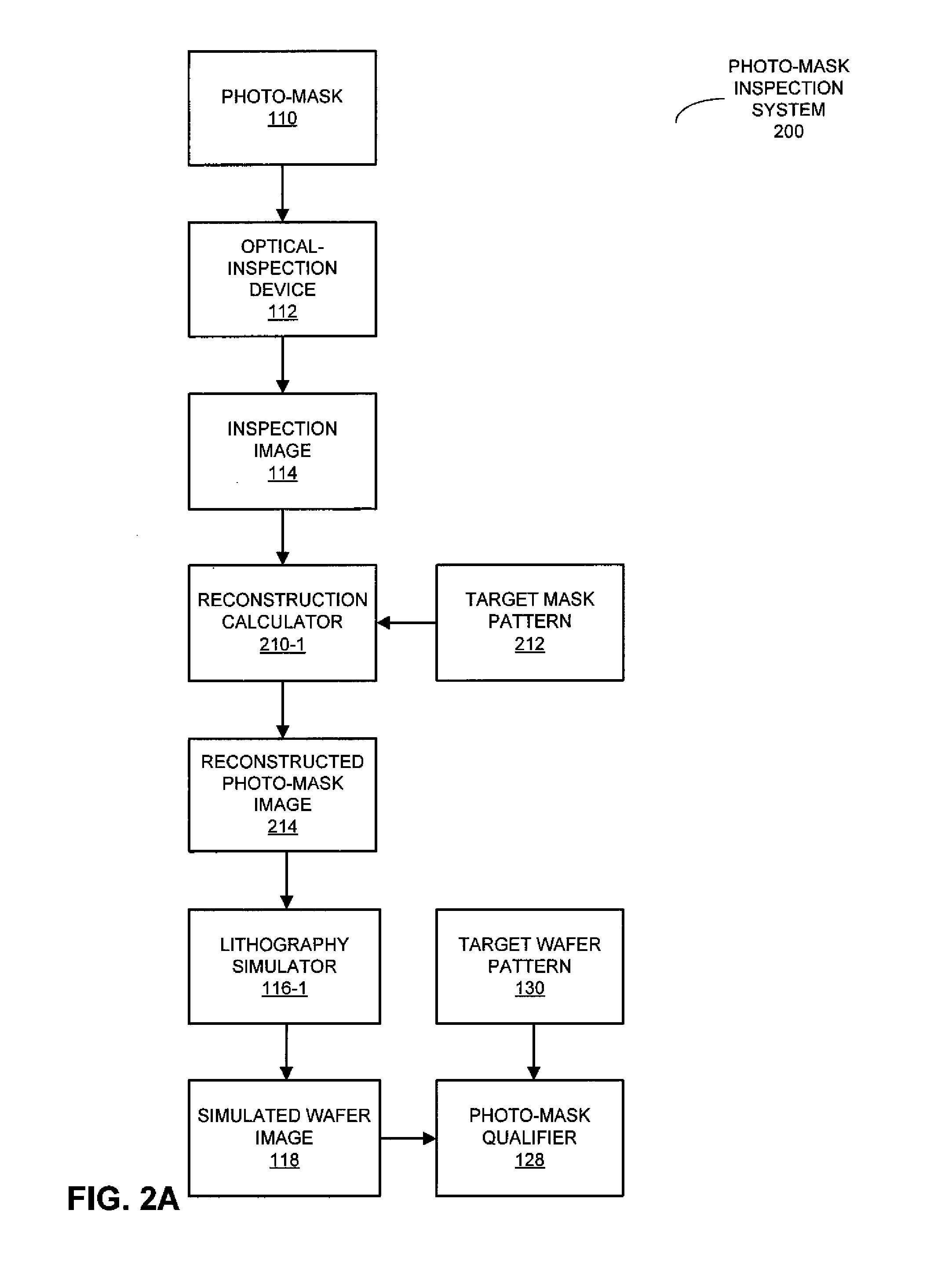Extending the field of view of a mask-inspection image
a mask inspection and image technology, applied in the field of system and technique for extending the field of view of mask inspection images, can solve the problems of a wide new class of problems in the field of photo-mask inspection and qualification, unclear what impact this defect will have on the final pattern of the photoresist, and the image measured by a photo-mask inspection tool is often neither a perfect replica
- Summary
- Abstract
- Description
- Claims
- Application Information
AI Technical Summary
Benefits of technology
Problems solved by technology
Method used
Image
Examples
Embodiment Construction
[0031]The following description is presented to enable any person skilled in the art to make and use the invention, and is provided in the context of a particular application and its requirements. Various modifications to the disclosed embodiments will be readily apparent to those skilled in the art, and the general principles defined herein may be applied to other embodiments and applications without departing from the spirit and scope of the present invention. Thus, the present invention is not intended to be limited to the embodiments shown, but is to be accorded the widest scope consistent with the principles and features disclosed herein.
[0032]Embodiments of a computer system, a technique for determining photo-mask defect disposition, and a computer program product (i.e., software) for use with the computer system are described. In this technique, a target mask pattern is used to expand an initial region in a photo-mask that is included in an initial mask-inspection image. In p...
PUM
 Login to View More
Login to View More Abstract
Description
Claims
Application Information
 Login to View More
Login to View More - R&D
- Intellectual Property
- Life Sciences
- Materials
- Tech Scout
- Unparalleled Data Quality
- Higher Quality Content
- 60% Fewer Hallucinations
Browse by: Latest US Patents, China's latest patents, Technical Efficacy Thesaurus, Application Domain, Technology Topic, Popular Technical Reports.
© 2025 PatSnap. All rights reserved.Legal|Privacy policy|Modern Slavery Act Transparency Statement|Sitemap|About US| Contact US: help@patsnap.com



